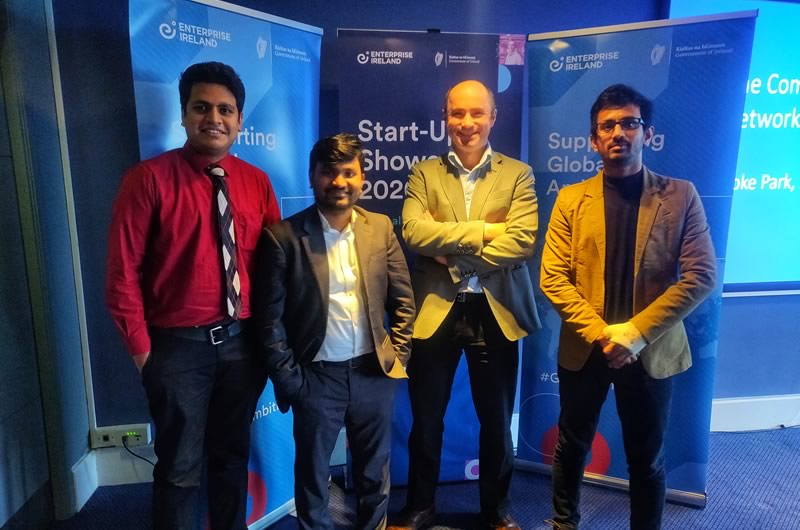The Centre for Advanced Photonics and Process Analysis (CAPPA) is delighted to announce that it recently received over €550,000 worth of funding for two projects, PIXCAN and Photocell, through the Enterprise Ireland Commercialisation Fund program. When asked about receiving the funding, centre manager Dr Liam Lewis said, “We are delighted to have received this funding for the Enterprise Ireland Commercialisation Fund and are looking forward to beginning work on these new projects.”
The aim of the Enterprise Ireland commercialisation fund programme is to improve the competitiveness of the Irish economy through the creation of technology-based start – up companies and the transfer of innovations developed in Higher Education Institutes and Research Performing Organisations to industry in Ireland. The programme will fund the development of innovations at all stages of the commercial pipeline to the point where they can be commercialised as new products, services and companies. Proposals are funding from €80,000 to €350,000 from all disciplines in the field of science and engineering.
PhotoCell, funded in two stages up to €349,000, will create new, a robust, low – cost technology for selective marking of somatic cells in raw milk. Somatic cell count (SCC) is indicative of animal health and is a deciding factor on further processing or disposal of the batch. The new platform will address common problems with existing methods of SCC and be based on surface – functional fluorescence nanodiamonds and intelligent image analysis. SCC is a key indicator for early detection of mastitis, one of the costliest diseases in dairy cattle. The standard biomarkers such as Propidium lodide or Ethidium Bromide that are commonly used for flow cytometry, suffer from the problem of photobleaching, photoblinking, cytotoxicity and limited shelf lifetime. PhotoCell will employ functionalized fluorescent nanodiamonds (f – FNDs), which are not cytotoxic. In contrast to organic dyes, f – FNDs are non – photobleachable even under continuous, long – term and high power illumination, and they are structurally stable. The number of somatic cells will be counted with high precision by means of optical analysis of raw milk samples. PhotoCell will be an optical based platform, which will facilitate high accuracy field-testing of SCC. The technology will be based on low – cost hardware such as Raspberry Pi and/ or iOS and Android smartphones.
PIXCAN’s goal is to build a wafer scale-testing platform for these photonic integrated circuits based on Resonant Scattering Spectroscopy (RSS) and received €209,000Most of the today’s internet services require huge data centre support. Within the data centers, data is exchanged between the server racks through optical fibers. The current optical transceivers are based on Mach-Zehnder interferometers, which have unsustainable-huge power consumption and large footprint. One of the main bottlenecks to bring this advanced technology into the market is the lack of wafer scale testing techniques, due to the non-light emitting nature of these resonators. This requires integration of sophisticated optical alignment algorithms, machine learning based device recognition on wafers, combined with high speed, high precision 3D moving platform. A proof-of-concept RSS set-up has been built at CAPPA and found to have the capability to reach the throughput required for wafer scale testing of devices. The proposed RSS based wafer scale testing technology is novel and requires low-maintenance and low-consumables compared to the existing and emerging technologies in the market, thus creating a great commercial opportunity. The primary benefit from this project for the Irish economy will be the formation of a new start-up company by providing innovative RSS Q-test systems services to a growing silicon photonics global market. PIXCAN aims to become a High-Potential Start-Up and create knowledge-based sustainable jobs in Ireland.
You can learn more about the Enterprise Ireland Commercialisation Funding, here and about the different projects CAPPA is currently working on here.



